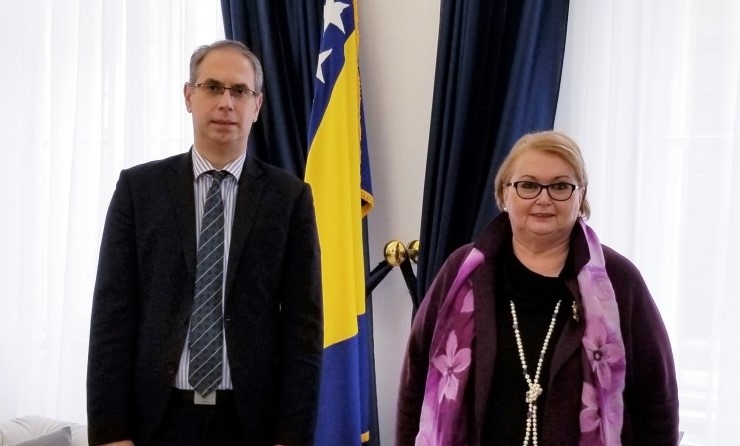Deputy Chair of the Council of Ministers and Minister of Foreign Affairs of Bosnia and Herzegovina Bisera Turković met today with the Special Representative of the Secretary-General of the Council of Europe for Migration and Refugees Drahoslav Štefanek.
They discussed the crisis of managing the migrant situation in Bosnia and Herzegovina, the difficult and uncertain situation in the Una-Sana Canton, and the ways and possibilities of solving the accumulated problems.
Special Representative Štefanek informed Minister Turković about his visit to migrant camps in Bihać and surrounding places, the preliminary results of his fact-finding mission on the field, and added that the situation is better, but that conditions are still difficult.
He stressed that, when it comes to solving this problem, it is necessary to strengthen coordination between state and local authorities in our country.
Štefanek pointed out that he understands the complexity of the situation in our country, that there is a complicated decision-making system, but also that, after visiting migrant centers in the USC and after meetings with officials in Bosnia and Herzegovina, he will be ready to offer concrete recommendations and solutions.
Minister Turković said that she had visited Bihać a few months ago, and that she fully understood the burden that the inhabitants of this part of Bosnia and Herzegovina are facing.
In that context, she stated the priorities related to solving the problems faced by local communities in the USC, which include the deployment of the migrant crisis throughout Bosnia and Herzegovina, and not only in the two cantons in the Federation of B&H.
Also, Minister Turković emphasized, the priority should be to strengthen the state border, i.e. to prevent the entry of migrants into Bosnia and Herzegovina.
